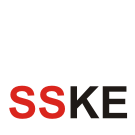From SSKE
| (2 intermediate revisions by one user not shown) | |||
| Line 1: | Line 1: | ||
| − | + | The service sector accounts now for over 70% of the activities and employment in the more advanced economies, and has been growing in all countries. Innovation in services is critical for sustainable societies, and there is an increasing support from Information Technologies in providing new services. Service Science is an interdisciplinary approach to the engineering of services systems in which specific arrangements of people and technologies take actions that have value for others. | |
| − | + | ||
| − | + | The main goal the '''Service Science Knowledge Environment''' ('''SS–KE''') is to implement a collaborative environment that would gather together different academic partners with the overall aim of creating a modern educational framework in the areas of ''Science'', ''Design'' and ''Management'' ''of services'', while promoting ''service innovation'' in different ''service sectors''. | |
| − | + | ||
| − | + | The '''Service Science Knowledge Environment''' ('''SS–KE''') targets also at creating a solid knowledge-based link between academia, industry and government, along with other European institutions. It supports sharing relevant information on Service Science that would be stored in a structured way based on a common vocabulary using an integrated ontology. From the technological point of view, wiki technologies are used for enabling the collaborative aspect of the environment. | |
| − | + | ||
| − | + | The '''Service Science Knowledge Environment''' ('''SS–KE''') is delivered as a service in the cloud. It approaches the conception and development of an open, collaborative, interactive environment to gather around universities, industry, governmental agencies and European institutions in order to foster service innovation by means of information / proves / technological transfer of the research results aiming to develop sustainable service systems innovation solutions. | |
| − | + | ||
| − | + | The digital content to be created along with this knowledge environment in order to be collaboratively available is intended to be used in three different perspectives, defining three main functionalities: | |
| − | + | ||
| − | + | 1. Development of a data base to highlight an ''educational knowledge path on Service Science'' fostering ''service innovation'' in different ''service sectors'', taking into consideration fundamental concepts related to Service Science (a) ''business oriented'', b) ''IT oriented'', and c) ''service orientation of processes''; | |
| − | + | ||
| − | + | 2. Growth of the service companies visibility. This will allow companies to publish company case studies related to service innovation. In this approach, a data base on service innovation in different service sectors will be gradually built; | |
| − | + | ||
| − | + | 3. Report on new methods, tools and software applications. The new methods, tools, software applications, PoTs (Proof of Technology) and PoCs (Proof of Concepts) will be used to ''develop IT services'' and to accomplish ''service automation''. All of these will eventually support ''service'' and ''service system innovation''. | |
| − | + | ||
| − | + | ||
| − | + | ||
| − | + | ||
| − | + | ||
| − | + | ||
| − | + | ||
| − | + | ||
Latest revision as of 12:51, 22 January 2013
The service sector accounts now for over 70% of the activities and employment in the more advanced economies, and has been growing in all countries. Innovation in services is critical for sustainable societies, and there is an increasing support from Information Technologies in providing new services. Service Science is an interdisciplinary approach to the engineering of services systems in which specific arrangements of people and technologies take actions that have value for others.
The main goal the Service Science Knowledge Environment (SS–KE) is to implement a collaborative environment that would gather together different academic partners with the overall aim of creating a modern educational framework in the areas of Science, Design and Management of services, while promoting service innovation in different service sectors.
The Service Science Knowledge Environment (SS–KE) targets also at creating a solid knowledge-based link between academia, industry and government, along with other European institutions. It supports sharing relevant information on Service Science that would be stored in a structured way based on a common vocabulary using an integrated ontology. From the technological point of view, wiki technologies are used for enabling the collaborative aspect of the environment.
The Service Science Knowledge Environment (SS–KE) is delivered as a service in the cloud. It approaches the conception and development of an open, collaborative, interactive environment to gather around universities, industry, governmental agencies and European institutions in order to foster service innovation by means of information / proves / technological transfer of the research results aiming to develop sustainable service systems innovation solutions.
The digital content to be created along with this knowledge environment in order to be collaboratively available is intended to be used in three different perspectives, defining three main functionalities:
1. Development of a data base to highlight an educational knowledge path on Service Science fostering service innovation in different service sectors, taking into consideration fundamental concepts related to Service Science (a) business oriented, b) IT oriented, and c) service orientation of processes;
2. Growth of the service companies visibility. This will allow companies to publish company case studies related to service innovation. In this approach, a data base on service innovation in different service sectors will be gradually built;
3. Report on new methods, tools and software applications. The new methods, tools, software applications, PoTs (Proof of Technology) and PoCs (Proof of Concepts) will be used to develop IT services and to accomplish service automation. All of these will eventually support service and service system innovation.



